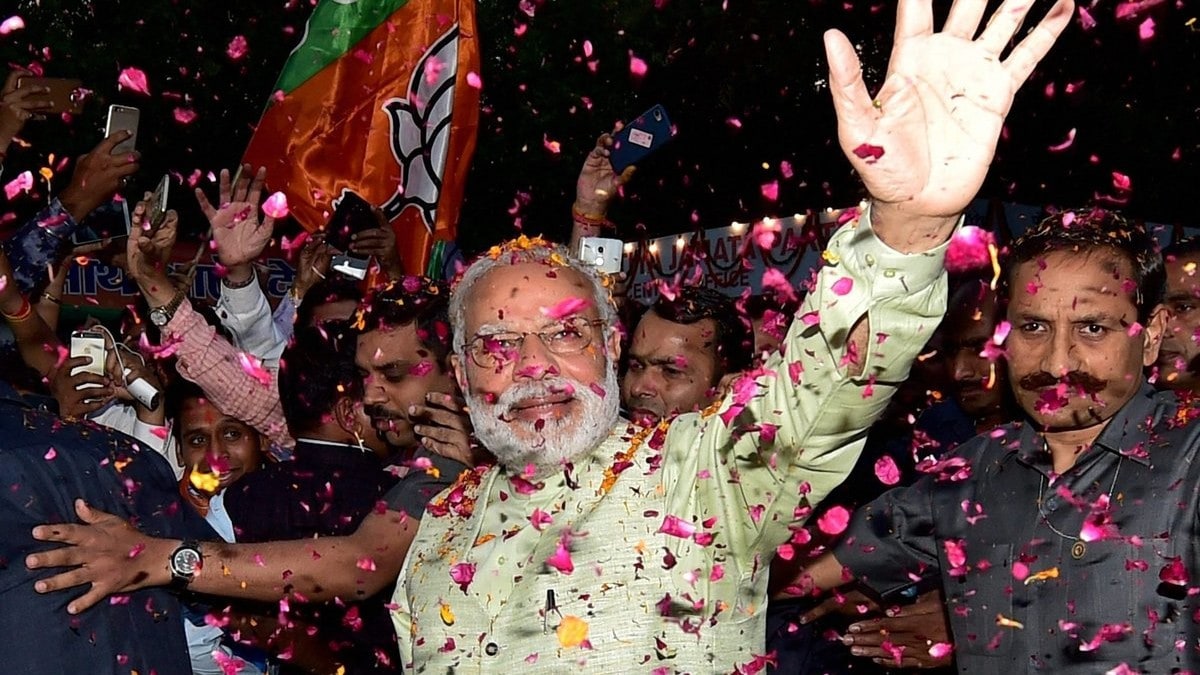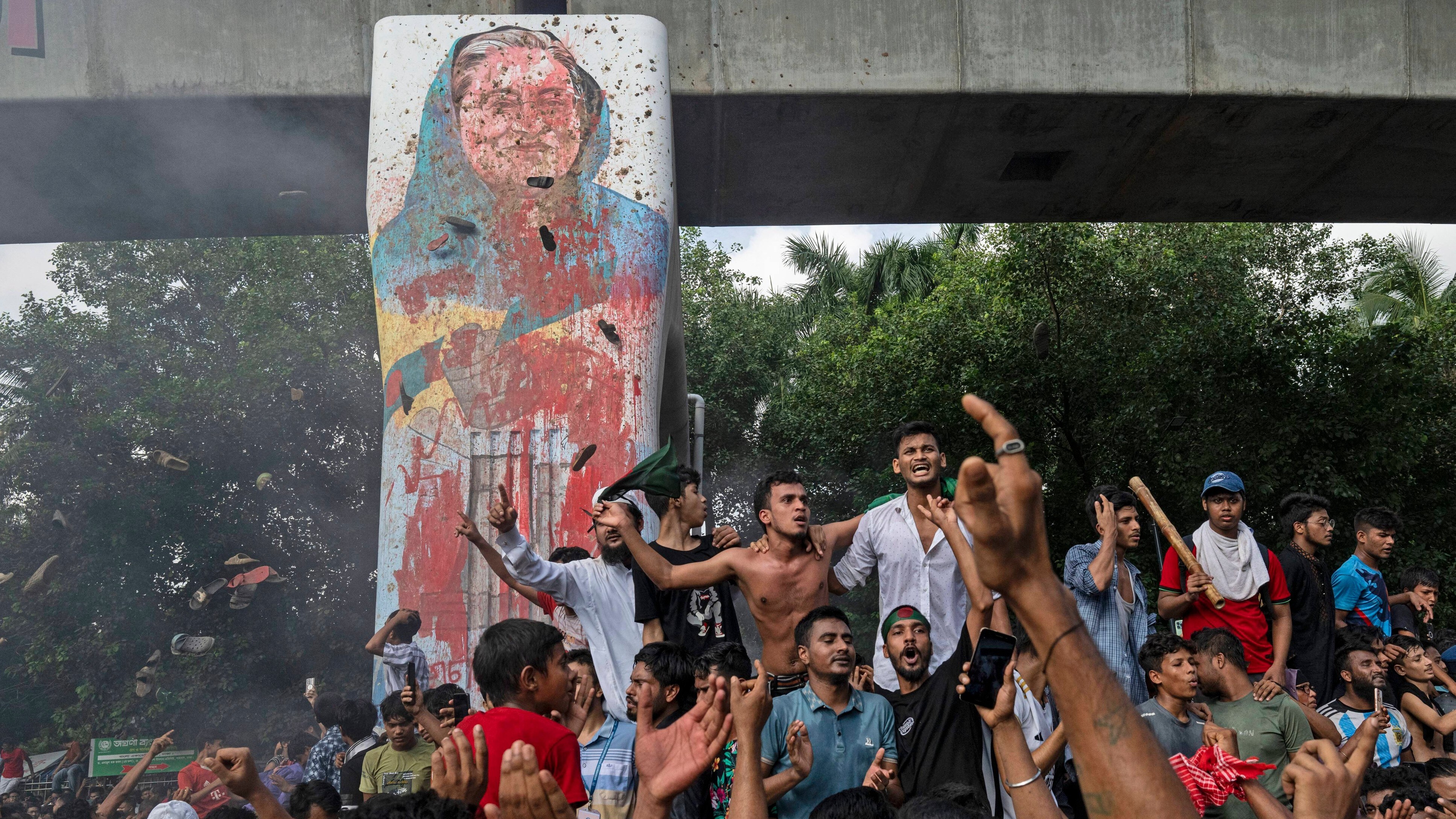
The year 2024 witnessed significant geopolitical events that changed global dynamics. Donald Trump returned to the US presidency, Bashar al-Assad's regime in Syria collapsed, and there were elections in India and Bangladesh. The Middle East, particularly with the ongoing Israel-Palestine conflict and rising tensions between Israel and Iran, remained a central focus. The toppling of Bangladesh's government added to the year's political turbulence, influencing the region's future.
The following developments highlighted the complex interplay between politics, security, and diplomacy, shaping priorities worldwide:
Trump Returns To White House

File photo of President-elect Donald Trump speaking at AmericaFest, Sunday, Dec. 22, 2024, in Phoenix. (Photo source: PTI)
Donald Trump made a comeback in the 2024 election, regaining the US presidency. His decisive victory raised concerns among economies globally, as he has promised to impose tariffs on all imports. In addition, the President-elect has also vowed to carry out a massive deportation exercise to send back "illegal immigrants".
Modi Equals Nehru's Record

File photo of Prime Minister Narendra Modi. (Photo source: PTI)
India's general election in 2024 witnessed high voter interest as key issues like economic reforms and social welfare dominated campaigns. The ruling Bharatiya Janata Party-led National Democratic Alliance secured another term, promising to sustain economic growth, strengthen infrastructure, and enhance India's global influence. Prime Minister Narendra Modi was sworn-in for a third consecutive term and is the second PM after Jawaharlal Nehru to be elected to power thrice in a row.
Bangladesh Government Toppled

Protesters celebrate beside a defaced portrait of Prime Minister Sheikh Hasina after news of her resignation, in Dhaka, Bangladesh, Monday, Aug. 5, 2024. (Photo source: AP/PTI)
Just within a few months after the general elections, Bangladesh experienced a political transformation in 2024 with the fall of its ruling government. Protests over job quotas and governance failures escalated, leading to a power struggle. The opposition gained traction, culminating in the government's resignation, and Bangladesh's Prime Minister Sheikh Hasina fled to India and sought refuge as her government faced increasing pressure.
Other Key Elections
Approximately four billion people participated in elections across over 80 countries. Mexico elected Claudia Sheinbaum as its first female president, while the UK saw the Labour Party end years of Conservative rule, signalling a shift in domestic priorities.
Transformations In Middle East
Assad's Regime Falls In Syria
Syria saw a significant shift with the fall of Bashar al-Assad's government. This created a power vacuum in Damascus, prompting increased involvement from Russia and Turkey, both seeking to secure their regional interests. The collapse led to questions about Syria's political future and its implications for Middle East.
Gaza War
Israel-Palestine Conflict Escalates: The conflict intensified this year, marked by escalating violence between Israeli forces and Palestinian groups in Gaza and the West Bank. Tensions increased due to Israeli settlement expansion and a series of rocket attacks from Gaza. The United Nations reported significant civilian casualties, with both sides accusing each other of breaching international law. The conflict triggered widespread protests in major cities worldwide, and human rights organisations called for stronger international intervention.
Stalemate Remains: Israeli Prime Minister Benjamin Netanyahu's government maintained a hardline stance, while Palestinian leadership faced internal divisions, with Hamas in Gaza and the Palestinian Authority in the West Bank unable to reach a consensus. Despite international calls for a ceasefire, negotiations remained stalled. The global community, including the European Union, urged renewed peace efforts, but both sides struggled with entrenched mistrust.
Israel-Iran Tensions Rise: In parallel, Israel's relationship with Iran became increasingly fraught in 2024. Both the countries carried out strikes at each other, which did not cause major fatalities but targeted military installations. Israel escalated military operations in Syria and Iraq, targeting Iranian military installations.
Impact On Regional Stability: The escalating conflict between Israel and Iran alarmed regional powers. Saudi Arabia, the UAE, and other Gulf states called for peace, but refrained from taking sides. However, several among them remained critical of Israel over the mounting civilian casualties in Gaza.
Essential Business Intelligence, Continuous LIVE TV, Sharp Market Insights, Practical Personal Finance Advice and Latest Stories — On NDTV Profit.























